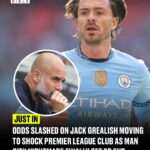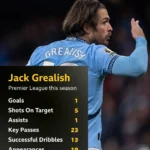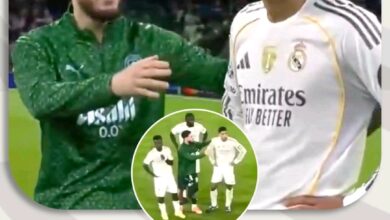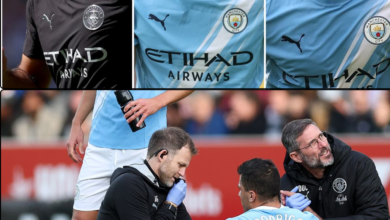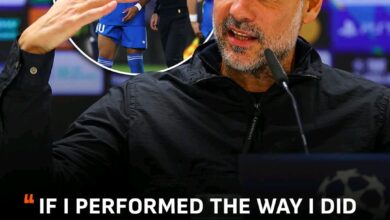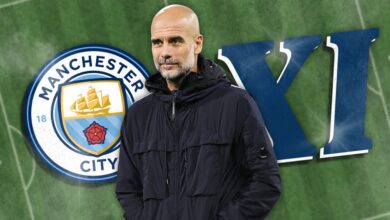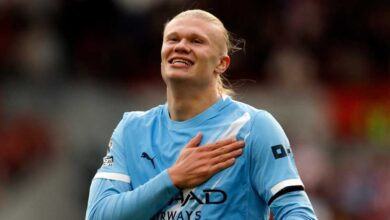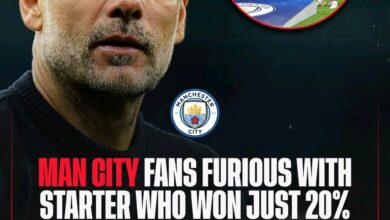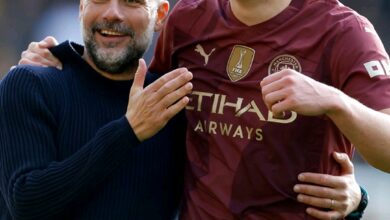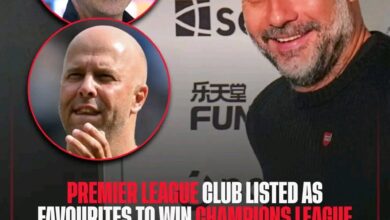Man City finally agrees to sell highly rared star to ‘sign big name
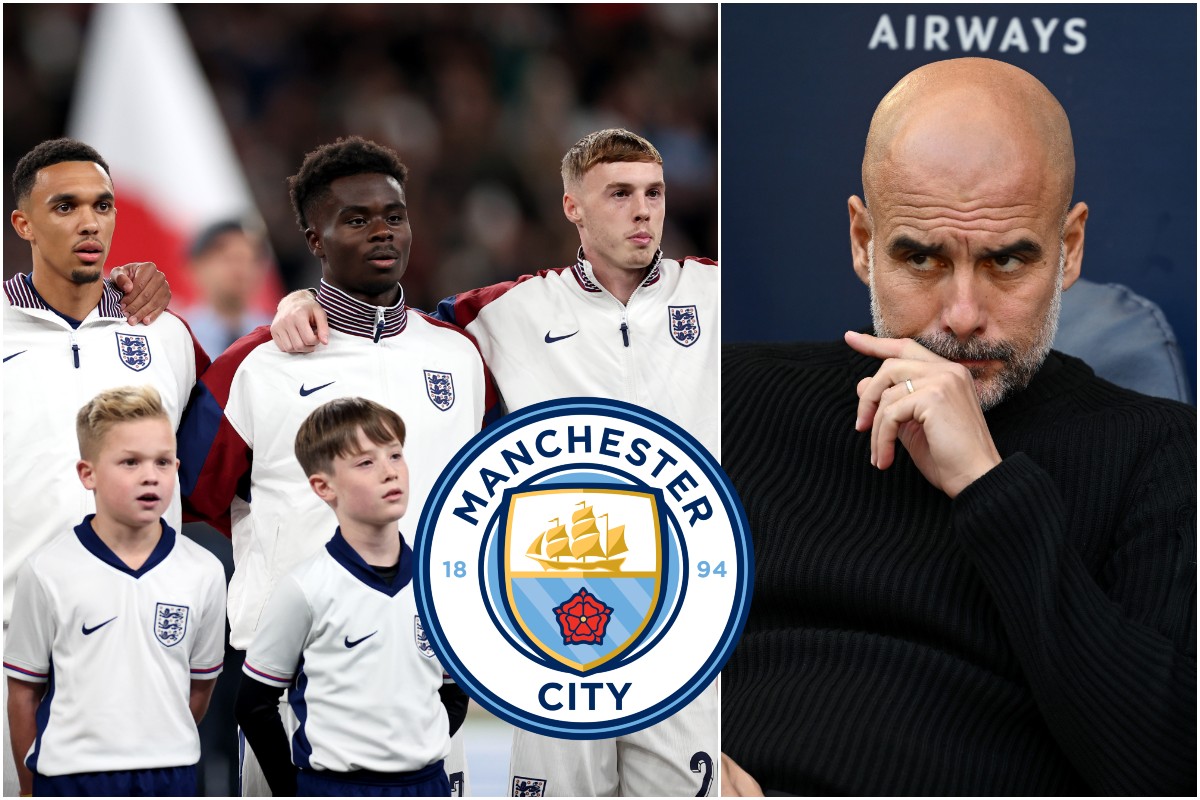
Manchester City appears ready to make a decisive move in the upcoming summer transfer window, with sources suggesting Jack Grealish could be heading for the exit door as the Premier League champions pursue a marquee signing to strengthen their attacking options. The potential departure of the England international, who joined City in a record-breaking £100 million transfer from Aston Villa in 2021, signals a significant shift in Pep Guardiola’s long-term vision for his squad as they continue their pursuit of domestic and European dominance.
Grealish’s Struggles for Consistency at the Etihad
After nearly three seasons at Manchester City, Grealish’s tenure at the Etihad Stadium has been characterized by flashes of brilliance interspersed with prolonged periods of inconsistency and limited playing time. The creative midfielder’s situation has come under increased scrutiny this season as he struggles to cement his place in Guardiola’s starting eleven. Despite City’s impressive start to their Premier League title defense – sitting just two points behind leaders Liverpool even after a surprising 2-1 defeat to Bournemouth – Grealish has been noticeably absent from many of the team’s pivotal encounters.
The statistics paint a telling picture of Grealish’s diminishing role: the 29-year-old has started only four Premier League matches this season and six across all competitions. Even when selected, his contributions have often been limited to brief appearances, raising questions about his long-term future at the club. This pattern mirrors his experiences from the previous campaign, suggesting a concerning trend rather than a temporary setback.
Mick Brown, whose extensive scouting experience includes stints with both Manchester United and Aston Villa, has revealed exclusive information regarding City’s potential transfer plans. Speaking to Football Insider, Brown disclosed: “I’m not sure about Jack Grealish. He’s been in and out of the team again this season, and he’s not a regular feature there. They’re happy with what [Jeremy] Doku and [Savinho] bring to the side. I’ve heard City could look to sign a big-name winger, as they feel the squad could be strengthened in that position.”
The Rise of Competition: Doku and Savinho
The emergence of Jeremy Doku and Savinho as dynamic wide options has further complicated Grealish’s path to regular first-team football. Doku, who arrived from Rennes with a reputation for explosive pace and direct dribbling ability, has quickly adapted to Guardiola’s tactical demands while offering a different dimension to City’s attacking play. His ability to beat defenders in one-on-one situations and deliver decisive crosses has endeared him to both the manager and supporters.
Similarly, Brazilian talent Savinho has made a significant impact since joining the squad, demonstrating technical excellence combined with tactical intelligence beyond his years. At just 21 years old, the former Troyes winger represents both the present and future of Manchester City’s attacking options, having seamlessly integrated into Guardiola’s complex system.
These developments have left Grealish fighting an increasingly difficult battle for playing time in a squad characterized by its exceptional depth and quality. The competition for places has always been fierce at City under Guardiola’s management, but the current situation appears particularly challenging for the England international as newer arrivals continue to impress.
Financial Implications and Future Planning
Brown’s insights extend beyond mere team selection issues to the financial realities underpinning potential transfer decisions. “Where does Grealish fit in the squad then? He’d be facing even fewer starts,” Brown explained. “If they do bring in a new option, I think they might look to move him out to free up some space and recoup part of their investment. He’s on significant wages as well, so this could open up some budget flexibility.”
This financial dimension cannot be overlooked in the modern football landscape, where even the wealthiest clubs must operate with a degree of fiscal responsibility, particularly in the era of Financial Fair Play regulations. Grealish’s substantial wages represent a significant commitment for a player who is increasingly viewed as a luxury squad option rather than a foundational piece of Guardiola’s preferred starting lineup.
By potentially moving Grealish on, City would not only recoup a portion of their substantial initial investment but also free up valuable space within their wage structure to accommodate new acquisitions. This financial engineering could prove crucial as the club prepares to target a high-profile winger who could elevate their attacking capabilities to new heights.
Personal Considerations for Grealish
From Grealish’s perspective, a move away from Manchester City might represent an opportunity to revitalize a career that has seemingly stalled since his departure from Aston Villa. Brown, who has personal knowledge of Grealish from his time at Villa Park, suggests that the player himself might welcome a change of scenery: “I’m sure it’s something he’d be open to because he wants to play football – I know Jack from his time at Villa, and he’s always wanted regular game time.”
This assessment aligns with the natural desires of any professional athlete, particularly one at the peak of their career. At 29, Grealish finds himself at a critical juncture – balancing the prestige of being associated with one of Europe’s elite teams against the fundamental need for consistent playing opportunities that allow him to showcase his considerable talents on a regular basis.
The psychological impact of transitioning from being the undisputed focal point at Aston Villa to a rotational option at City should not be underestimated. Throughout his career, Grealish has thrived when given freedom to express himself as a central creative force, a role that has been increasingly difficult to fulfill within the structured environment of Guardiola’s tactical system and amid fierce competition for places.
Roy Keane’s Prophetic Warning
Brown’s revelations echo concerns previously expressed by former Manchester United captain Roy Keane, who warned in September about the potential consequences of Grealish’s limited playing time. Speaking on ITV Sport, Keane offered a characteristically forthright assessment: “The biggest thing for Jack is that he needs to play regularly, which is difficult given the competition at City. When he’s not playing often, he loses his sharpness quickly. It’s essential he gets more game time at City.”
Keane’s comments highlight the technical challenges faced by creative players who rely on rhythm and confidence to perform at their best. Unlike more functional roles within a team structure, playmakers of Grealish’s profile often require consistent minutes to maintain the delicate balance of skill and decision-making that defines their contributions.
The Irish legend also emphasized the connection between club performance and international opportunities, noting: “Usually, strong club performances lead to international selection. Your focus should be on what you do week in, week out at club level, especially for players like Jack. After what’s happened this summer, he’s reacted well and scored at the weekend, but looking ahead, he needs to play more regularly for City.”
This advice seems particularly pertinent given Grealish’s ambitions to remain a key figure for England, especially with increasing competition for attacking positions within the national team setup. Younger talents constantly emerging on the international scene mean that established players cannot afford extended periods on the periphery at club level without risking their international standing.
Ian Wright’s Support and Belief
While some observers might interpret Grealish’s City career as underwhelming given the expectations created by his transfer fee, Arsenal legend Ian Wright has offered a more optimistic perspective, particularly regarding Grealish’s performances for England. Reflecting on recent international displays, Wright observed: “He’s being progressive, taking on defenders, creating chances – it’s exactly what we want to see from him. He’s starting to look more like the player we saw at Aston Villa, taking people on and making things happen.”
Wright’s analysis cuts to the heart of what made Grealish such an exciting prospect before his move to City – his ability to drive forward with the ball, commit defenders, and create opportunities through individual brilliance combined with intelligent team play. These qualities have been witnessed less frequently at the Etihad Stadium, where tactical discipline and collective patterns of play often take precedence over individual expression.
Nevertheless, Wright believes these recent performances could potentially influence Guardiola’s thinking: “We haven’t seen as much of this at City, but his performances for England show he still has it. If he can continue in this form, he might just force his way back into that team. I’d love to see him playing like he did at Villa, where his skill and flair were undeniable.”
This perspective offers a glimmer of hope that Grealish might yet reverse his fortunes at City through consistent performances when opportunities arise. Football careers are often defined by such pivotal moments when players either adapt successfully to challenging circumstances or seek new environments more conducive to their particular strengths.
Guardiola’s Philosophy and Tactical Considerations
Understanding Grealish’s situation requires examining Pep Guardiola’s evolutionary tactical approach at Manchester City. The Spanish manager has consistently demonstrated a willingness to reshape his squad and tactical framework to stay ahead of competitors, with player roles constantly evolving to meet changing objectives.
When City secured Grealish’s signature in 2021, the acquisition was viewed as a statement of intent – bringing in a proven Premier League creator who could add another dimension to an already formidable attacking unit. However, Guardiola’s system has continued to evolve, with an increased emphasis on tactical flexibility and positional interchanges that have sometimes appeared at odds with Grealish’s more traditional approach to wing play.
While possessing undoubted technical quality, Grealish’s style – characterized by receiving the ball to feet before attempting to beat defenders – contrasts with the more direct, vertical approach favored by players like Doku. Additionally, Guardiola’s increasing use of inverted full-backs has created a more congested central area, potentially limiting the space in which Grealish naturally operates.
These tactical nuances help explain why certain players have flourished in City’s system while others, despite their obvious talents, have found it more challenging to make consistent impacts. This tactical evolution appears set to continue with the potential arrival of another high-profile winger, suggesting Guardiola has identified specific qualities he believes will enhance his team’s attacking capabilities.
Potential Destinations and Career Rehabilitation
Should Manchester City proceed with plans to transfer Grealish, several potential destinations could offer him the platform to rejuvenate his career. Premier League clubs with European ambitions might view him as a transformative signing capable of elevating their creative output, while certain elite European teams could be attracted by the prospect of acquiring a technically gifted English player with point-to-prove motivation.
A return to Aston Villa, while emotionally appealing to many supporters, seems financially unlikely given the club’s prudent approach to recruitment under Unai Emery. However, teams like Newcastle United, with their Saudi-backed financial resources and growing project, or Tottenham Hotspur, who continue to seek creative reinforcements, could represent realistic options within the Premier League landscape.
Alternatively, a move abroad might offer Grealish a fresh challenge and opportunity to experience a different football culture. Serie A clubs have historically provided environments where technically gifted players can thrive at a slightly less frenetic pace than the Premier League, potentially allowing Grealish to showcase his creative abilities in a context more suited to his particular strengths.
The Bigger Picture: City’s Transfer Strategy
Manchester City’s potential decision to move on from Grealish reflects the club’s ruthless pursuit of excellence under both Guardiola and the broader leadership structure. Despite significant investments in players, City has never hesitated to make difficult decisions when performances fail to match expectations or when superior alternatives become available.
This approach has been evident in previous high-profile exits, from Raheem Sterling’s departure to Chelsea to Ferran Torres’s move to Barcelona. In each case, City has demonstrated a willingness to reset and recalibrate their squad composition based on evolving priorities and performance assessments.
The club’s interest in acquiring a “big-name winger” signals an ambitious approach to the upcoming transfer window. While specific targets remain undisclosed, City’s financial capabilities and prestige position them to compete for the most coveted attacking talents in world football. Names frequently linked with the club include electrifying talents like Rafael Leão from AC Milan and Khvicha Kvaratskhelia from Napoli – players who combine technical brilliance with consistent end product at the highest level.
Such an acquisition would represent another statement of intent from City’s ownership group, demonstrating their continuing commitment to providing Guardiola with the tools necessary to maintain domestic supremacy while pursuing the club’s ultimate ambition of Champions League glory.
The Legacy Question for Grealish
As speculation intensifies regarding his future, Grealish faces important questions about the legacy he wishes to establish in his career. The trajectory that once seemed destined to make him a transformative signing for Manchester City has not materialized as many expected, creating a crossroads moment that will define the next chapter of his football journey.
For some players, remaining at an elite club even in a reduced capacity represents sufficient fulfillment of their ambitions. The opportunity to be associated with trophy successes and to work under world-class management holds genuine appeal, even when personal contributions are more limited than initially envisioned.
However, for a player of Grealish’s evident talents and creative instincts, the desire for regular expression on the pitch often supersedes other considerations. His performances at Aston Villa demonstrated his capacity to be the focal point around which an entire team’s attacking philosophy revolves – a role that carries both significant responsibility and the accompanying satisfaction of meaningful influence.
The dilemma facing Grealish mirrors that encountered by numerous technically gifted players throughout football history – weighing the prestige of association with winning institutions against the fulfillment derived from regular meaningful contribution. His decision, whether proactive or reactive to City’s plans, will reveal much about his priorities at this stage of his career.
Conclusion: Summer of Decision Awaits
As Manchester City continues their pursuit of trophies across multiple competitions, the questions surrounding Jack Grealish’s future will inevitably intensify as the summer transfer window approaches. The potential decision to part ways with a player who represented the club’s record investment just three years ago underscores both the rapid evolution of elite football and the particularly demanding standards established at the Etihad Stadium.
For Grealish, the coming months represent an opportunity to either force a reassessment of his value to Guardiola’s plans through compelling performances or to prepare for a new chapter that could reignite the creative spark that made him one of English football’s most captivating talents. Either path contains significant challenges but also the potential for redemption and renewed purpose.
For Manchester City, the apparent willingness to consider Grealish’s departure reflects their unemotional approach to squad building – always looking forward rather than backward, prioritizing future performance over past investment. This clinical decision-making process has underpinned their sustained success under Guardiola and seems unlikely to change regardless of sentiment or financial considerations.
As this situation develops, football observers will watch with interest to see whether Grealish can defy expectations by reasserting his value to the City project or whether a parting of ways will ultimately prove beneficial for all parties involved. What remains certain is that the decision will significantly impact both the player’s career trajectory and Manchester City’s attacking options for the seasons ahead.
The summer transfer window promises to deliver clarity on this compelling football narrative, determining whether Jack Grealish’s Manchester City story will experience an unexpected revival or reach its conclusion as the club pursues new talent to maintain their position at football’s summit.

